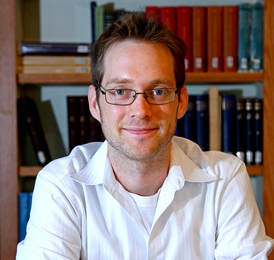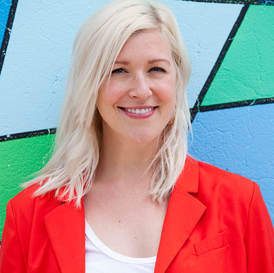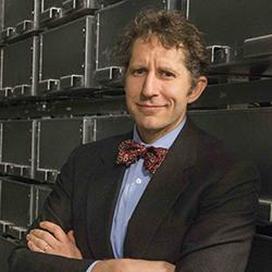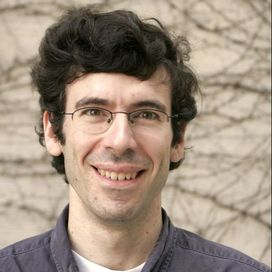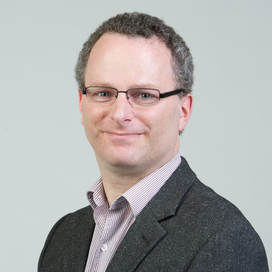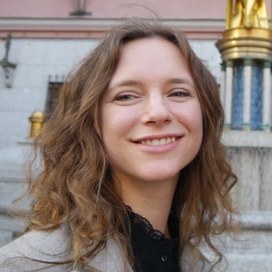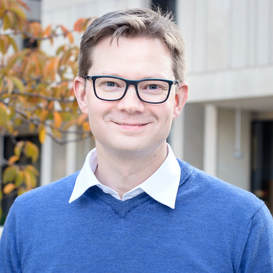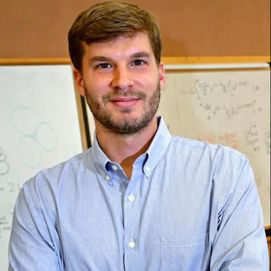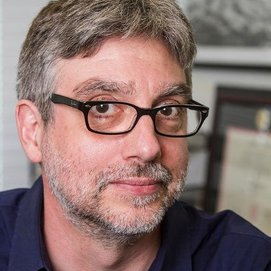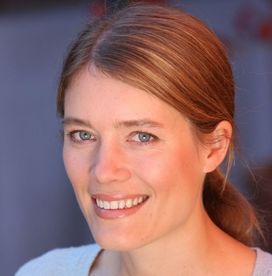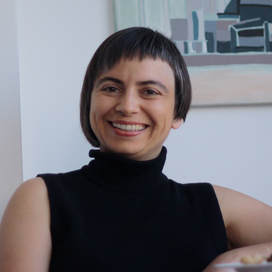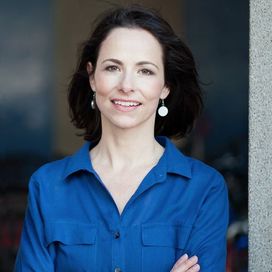AARON CLAUSETFaculty hiring and epistemic inequality in the spread of scientific ideas
March 7 | 3:00 pm — 3:30 pm Aaron Clauset is an Assistant Professor in the Department of Computer Science and the BioFrontiers Institute at the University of Colorado Boulder, and External Faculty at the Santa Fe Institute. He received a PhD in Computer Science, with distinction, from the University of New Mexico, a BS in Physics, with honors, from Haverford College, and was an Omidyar Fellow at the prestigious Santa Fe Institute. He is an internationally recognized expert on network science and computational analyses of complex systems. His work has appeared in prestigious scientific venues including Nature, Science, PNAS, JACM, AAAI, ICML, SIAM Review, and Physical Review Letters, and has been covered in the popular press by the Financial Times, the Wall Street Journal, The Economist, Discover Magazine, New Scientist, Wired, Miller-McCune, the Boston Globe and The Guardian.
|
KAYLA DE LA HAYE
The social contagion of obesity: Understanding mechanisms, developing network interventions
March 5 | 2:30 pm — 3:00 pm Kayla de la Haye is an Assistant Professor of Preventive Medicine at the University of Southern California, who specializes in applying social network analysis and systems science to health promotion and disease prevention. Her current work, funded by the NIH, NSF, and DoD/ARO, focuses on utilizing family and community social networks in preventing childhood obesity, and understanding the role of social networks in group problem solving and collective intelligence in families, teams, and community coalitions. Dr. de la Haye is a member of the Board of Directors of the International Network of Social Network Analysis (INSNA), and she holds a Ph.D. in psychology from the University of Adelaide in Australia.
|
JAMES EVANS
The Wisdom of Polarized Crowds
March 7 | 2:30 pm — 3:00 pm James Evans is the Director of Knowledge Lab (http://knowledgelab.org), a Professor of Sociology and the Faculty Director for the Masters in Computational Social Science Program at the University of Chicago. Before Chicago, he received his doctorate in sociology from Stanford University, served as a research associate in the Negotiation, Organizations, and Markets group at Harvard Business School, started a private high school focused on project-based arts education, and completed a BA in Anthropology and Economics at Brigham Young University. His research focuses on the collective system of thinking and knowing, ranging from the distribution of attention and intuition, the origin of ideas and shared habits of reasoning to processes of agreement (and dispute), accumulation of certainty (and doubt), and the texture—novelty, ambiguity, topology—of human understanding. His research is funded by the National Science Foundation, the National Institutes of Health, the Templeton Foundation and other sources, and has been published in Science, American Journal of Sociology, Social Studies of Science,Administrative Science Quarterly, PLoS Computational Biology and other journals. My work has been featured in Nature, the Economist, Atlantic Monthly, Wired, NPR, BBC, El País, CNN and many other outlets.
|
|
DAVID LAZER
The Prevalence and Dissemination of Fake News
March 5 | 9:15 am — 10:00 am David Lazer is a Distinguished Professor of Political Science and Computer and Information Science, Northeastern University, and co-director for the NULab for Texts, Maps, and Networks. Prior to joining Northeastern University, he was on the faculty at the Harvard Kennedy School (1998-2009). His research focuses on the nexus of network science, computational social science, and collaborative intelligence. He is the founder of the citizen science website Volunteer Science and the political visualization website VisPolics. His research has been published in such journals as Science, Proceedings of the National Academy of Science, the American Political Science Review, and the Administrative Science Quarterly, and has received extensive coverage in the media, including the New York Times, NPR, the Washington Post, the Wall Street Journal, and CBS Evening News.
|
|
OLAF SPORNS
Network Neuroscience: Understanding the Structure and Function of the Brain
March 6 | 9:00 am — 9:45 am Olaf Sporns earned a PhD in Neuroscience at Rockefeller University and then conducted postdoctoral work at The Neurosciences Institute in New York and San Diego. Currently he is the Robert H. Shaffer Chair, a Distinguished Professor, and a Provost Professor in the Department of Psychological and Brain Sciences at Indiana University in Bloomington. He is co-director of the Indiana University Network Science Institute and holds adjunct appointments in the School of Informatics and Computing and the School of Medicine. His main research area is theoretical and computational neuroscience, with a focus on complex brain networks. He is the author of over 200 publications, and two books, “Networks of the Brain” and “Discovering the Human Connectome”. He is the Founding Editor of “Network Neuroscience”, a journal published by MIT Press. Sporns was awarded a John Simon Guggenheim Memorial Fellowship in 2011 and was elected Fellow of the American Association for the Advancement of Science in 2013.
|
JESSIKA TRANCIK
How to make technology solve big problems?
March 8 | 4:15 pm — 4:45 pm Jessika Trancik is the Atlantic Richfield Career Development Associate Professor in Energy Studies at the Institute for Data, Systems and Society (IDSS) at the Massachusetts Institute of Technology. She is also an external professor at the Santa Fe Institute. She received her B.S. in materials science and engineering from Cornell University and her Ph.D. in materials science from the University of Oxford as a Rhodes Scholar. Before MIT, she spent several years at the Santa Fe Institute as an Omidyar Fellow, and at Columbia University as an Earth Institute Fellow, where her research focused on energy systems modeling. Her research group studies the dynamic costs and environmental impacts of energy technologies to inform technology design and policy.
|
MILENA TSVETKOVA
The Dynamics of Disagreement
March 8 | 3:45 pm — 4:15 pm Milena Tsvetkova is an Assistant Professor in the Department of Methodology at the London School of Economics and Political Science. She completed her PhD in Sociology at Cornell University in 2015. Prior to joining LSE, she was a Postdoctoral Researcher in Computational Social Science at the Oxford Internet Institute, University of Oxford. Milena’s research interests lie in the fields of computational and experimental social science. She employs online experiments, network analysis, and agent-based models to study fundamental social phenomena such as cooperation, contagion, segregation, and inequality. Currently, she is collaborating with computer scientists to combine gamification and citizen science and develop new methods for large-scale network experiments online. Milena’s work has been sponsored by the National Science Foundation (USA) and the Volkswagen Foundation (Germany), published in high-impact interdisciplinary journals such as Scientific Reports, Science Advances, and PLOS ONE, and covered by The New York Times, The Guardian, and Science, among others.
|
FERNANDA B. VIÉGASFrom networks to geometry: lessons from machine learning
March 7 | 9:15 am — 10:00 am Fernanda B. Viégas is a computational designer whose work focuses on the social, collaborative, and artistic aspects of information visualization. She is a co-leader, with Martin Wattenberg, of Google's "Big Picture" data visualization group in Cambridge, MA. Before joining Google, she and Wattenberg founded Flowing Media, Inc., a visualization studio focused on media and consumer-oriented projects. Prior to Flowing Media, they led IBM's Visual Communication Lab, creating the ground-breaking public visualization platform Many Eyes, an experiment in open, public data visualization and analysis. Viégas's prior research at the MIT Media Lab focused on the visualization of online communities. She is known for her pioneering work on depicting chat histories, email archives, and Wikipedia activity. Her artistic visualizations have been exhibited in venues such as the New York Museum of Modern Art, the Boston Institute of Contemporary Art, and the Whitney Museum of American Art. Viégas holds a Ph.D. and M.S. from the Media Lab at MIT. She is Brazilian and misses the year-round warm weather in Rio de Janeiro where she grew up.
|
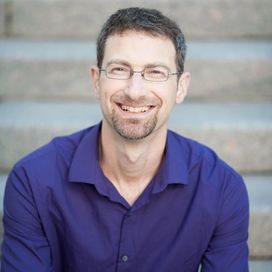
|
|
